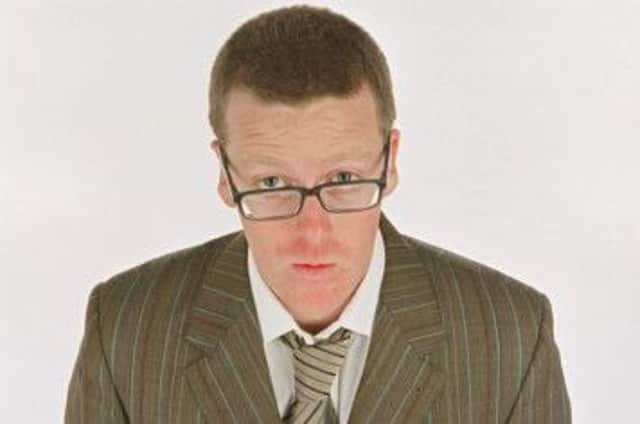Forget the gloom: this is a golden age of reading


BOOK lovers, more often than not, are voices of gloom in contemporary society: the demise of the high street bookstore, the prevalence of e-readers, the publishing industry in crisis. But associate editor of the Observer, Robert McCrum, speaking at Glasgow’s Aye Write Book Festival on Saturday, proclaimed a golden age of reading.
“Compared to any time in the last 300 years, more reading is being done in more formats,” he said. And with a dazzling range of reading material available at the touch of a button, book festivals like this one – and lists, like the one of 100 novels which McCrum is currently compiling – have a role in guiding readers towards good books.
Advertisement
Hide AdIt was a pleasure to find that the final day of Aye Write on Saturday not only celebrated new books – those being promoted by publishers and the bread-and-butter of most book festivals – but found ways to open up a much broader range of reading. Novels through the ages were the meat of the discussion between McCrum and Michael Schmidt, author of the just-published doorstop The Novel: A History. How did the novel begin? Is it a middle-class form? Is there an English, or American, or Scottish tradition? Do the best novels come from “a deep, dark place” (McCrum) or from a spirit of play and experimentation?
While both commented on a dearth of ambitious, exciting novels in recent years, they agreed that it takes only one book to change that. Such might be House of Leaves by American writer Mark Z Danielewski (at Aye Write later in the day), daring, experimental and already a cult classic.
Richard Holloway, former Bishop of Edinburgh, included no novels in his selection of five “Books That Made Me”. He started with the Book of Job, a text perhaps 3,000 years old which wrestles with the timeless problem of suffering, as Holloway himself does. Then, following the gospel of Luke, with its “subversive Jesus”, he arrived at Nietzsche, who anticipated a question which has been key to Holloway’s own writing: how can one live morally in a post-religious age? Poetry, he says, is his devotional reading these days, and he picked out the Collected Poems of Philip Larkin, marvelling at Larkin’s ability to anticipate death and acknowledge his own fear of it, yet write about it with such mournful beauty.
There is a similar elegiac quality to the poems which begin and end Alasdair Gray’s new book, Of Me And Others, launched at Aye Write. Billed as an autobiography, it is a collection of essays which weave together to create a picture of his writing life. His debut reading from it was warmly received, ranging widely across early memories (the moment he realised he was a writer), encounters with others (being kissed on the lips by the maverick psychologist RD Laing) and his political writing (an extract from the Declaration of Intent for Scotland, drafted by Gray and James Kelman for Tommy Sheridan’s SWSP).
Gray, who grew up an avid borrower from Riddrie Public Library, was one of several writers at the festival who paid tribute to libraries, appropriate given that Aye Write has a library at its centre, and pertinent as government support for public libraries appears to be under threat.
Val McDermid was another library aficionado, saying Elinor Brent-Dyer’s Chalet School stories, borrowed from her local library in Kirkcaldy, taught her the fundamentals of fiction. Her conversation with friend and stand-up comedian Susan Calman was so entertaining that one audience member ventured to suggest they should both be on Radio 4’s News Quiz.
Advertisement
Hide AdAs a writer of dark contemporary crime fiction, McDermid is not the most obvious candidate for The Austen Project, an initiative by HarperCollins to have all six Austen novels reimagined by contemporary writers, but her newly published take on Northanger Abbey has been widely praised. Austen’s abilities as a storyteller, she said, meant that her characters flowed almost seamlessly into the present day.
The entertainment rolled on into the evening as straight-talking stand-up comic Frankie Boyle was invited to talk about the books that made him. But Boyle is a dark horse when it comes to reading. Not only was he another library kid (Pollockshaws in his case), he has a degree in English Literature.
Advertisement
Hide AdThe audience may have been a little surprised to hear that he is a reader of Noam Chomsky and Guy Debord, and that he is an avid fan of Danielewski’s House of Leaves. His five books included JRR Tolkien’s The Lord of the Rings, James Kelman’s A Disaffection and John Irving’s The Cider House Rules, which introduced him to pro-choice ideas and caused him to rebel against his Catholic education.
So ended a day of surprises: the former bishop’s love for Nietzsche, the crime writer who took on Jane Austen, and the stand-up comedian turned literary theorist. One aim of book festivals is to encourage us to read, and I defy anyone to leave such a day without a fresh new list of must-read titles.